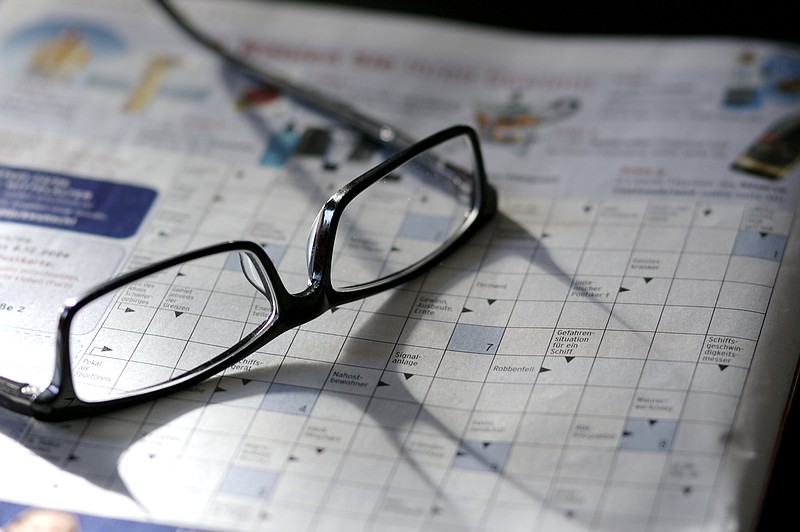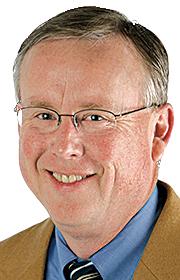I interviewed a young Chattanooga woman the other day - someone in her 30s - who I found mature beyond her years. She talked to me about her new job, and she said that she is relying on confidence tempered with humility to get her through.
Driving home later that day, it dawned on me that confidence and humility are the two cornerstones of wisdom, that elusive virtue we all want. As we all learn eventually, wisdom is not the raw accumulation of knowledge; it's living with the dead certainty that you don't know much while remaining confident that you can still muddle through.
Confidence and humility work best when they are fused together like atoms in a molecule. Too much of either and it throws off the whole chemical composition of your character. (You might even become a gas.) Face it: Nobody loves a know-it-all or a whiner.
Kids today are taught to be confident, some might say overconfident. Confidence is a by-product of self-esteem, which modern parents serve to their offspring in heaping portions. My two boys are fat on confidence.
In team sports, winning is exalted and losing is occasionally "awesome," too. Parents apply bumper stickers to their cars to announce their progeny are "Honor Students." At my son's school, every child - sooner or later - receives a character award for honesty, or helpfulness, or kindness - like mini Nobel Peace Prizes. The award ceremonies, in turn, are recorded in smartphone videos that are zapped off to doting grandparents.
Sometimes I wish either of my two sons would just say: "You know, Dad, I'm not every good at (fill in the blank)."
For the record, I'm not good at foreign languages, resisting the urge to be sarcastic, talking to strangers, making friends, eating fried pickles, remembering names, sending thank-you notes and folding fitted sheets. This is an incomplete list, as my wife and sons can attest.
It's when you finally learn to itemize and use your weaknesses as tools that you begin to get a whiff of wisdom.
For example, I was interviewing someone last week who admitted to being shy. I told her that I was shy, too, and therefore not completely competent as a reporter - although it is my life's work. On another level, I was confident that sharing this personal flaw would make the interview go smoother.
And it did.
Another example: I was walking down the street one day last week and I noticed a older woman feeding a parking meter. She appeared to be a grandmother with a grandson in tow. As she walked away from her meter, she dropped a wad of paper.
My inclination is to avoid starting conversations with strangers - a by-product of shyness. But for reasons that are still unclear to me, I managed to croak, "Ma'am, I think you dropped something back there. It might be important."
She shuffled back, bent down, and picked up what turned out to be a crumpled envelope.
"It's my money," she gasped. "It's all my money! God bless you, sir! God bless you!"
I nodded a couple of times - embarrassed - then turned and walked away. She continued to shout out blessings in my direction until my ears turned red.
In an instant, my mind had calculated a small, but remote, possibility that the crumpled paper was important, balanced that probability against my natural disinclination to talk to strangers, and goosed me to "Say something, stupid!"
I have a feeling that a decade ago I would have been too selfish, too self-absorbed to bother. Humility, which I feel growing inside me at age 57, is the dry kindling of humanity.
Socrates said: "The only true wisdom is to know you know nothing."
But then what did Socrates know?
Contact Mark Kennedy at mkennedy@timesfreepress.com or 423-757-6645. Follow him on Twitter @TFPCOLUMNIST. Subscribe to his Facebook updates at www.facebook.com/mkennedycolumnist.

